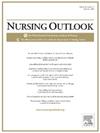大语言模型在定性护理研究中的应用:范围综述
IF 3.7
2区 医学
Q1 NURSING
引用次数: 0
摘要
大语言模型(llm)为护理实践和研究提供了重要的潜在好处。先进的自然语言处理能力可以有效地分析定性研究中的文本。然而,对其在护理中的应用背景和疗效的系统探索仍然有限。目的对法学硕士在定性护理研究中的应用进行综述,探讨法学硕士在定性护理研究中的应用现状、效果、评估方法及面临的挑战,为今后的发展提供参考。方法相关文献来源于截至2025年4月的11个数据库,采用Joanna Briggs Scoping Review Methodology和PRISMA-ScR报告标准。本综述的搜索词包括“护士*”、“大型语言模型*”、“定性研究*”和“定性分析*”。研究结果:在回顾了2478篇文章后,我们纳入了11项研究。法学硕士在质性护理研究中的应用场景包括话题生成、角色扮演和访谈问题生成。LLM输出在主题生成和卓越的文本分析效率方面与人类输出表现出中等至高度的相似性,但在应用理论框架、生成面试问题和开发代码本方面表现不佳。本综述系统地概述了法学硕士在定性护理研究中的应用和局限性。虽然法学硕士有很大的潜力,但它的应用还处于起步阶段。结论未来的研究需要解决分析深度、模拟精度、技术限制和评估工具等问题。本文章由计算机程序翻译,如有差异,请以英文原文为准。
The application of large language models in qualitative nursing research: A scoping review
Background
Large language models (LLMs) provide significant potential benefits for nursing practice and research. Advanced natural language processing capabilities can effectively analyze text in qualitative studies. However, systematic exploration of their application contexts and efficacy in nursing remains limited.
Purpose
This review aimed to conduct a scoping review of LLMs’ application in qualitative nursing research, exploring current scenarios, effects, assessment methods, and challenges to provide a reference for future development.
Methods
Relevant literature was sourced from 11 databases up to April 2025 and used Joanna Briggs Scoping Review Methodology and PRISMA-ScR reporting standards. The search terms for this review included “nurs*,” “large language model*,” “qualitative study*,” and “qualitative analys*.”
Findings
We included 11 studies after reviewing 2,478 articles. The application scenarios of LLMs in qualitative nursing research included topic generation, role-playing, and interview question generation. LLM outputs demonstrated moderate-to-high similarity to human outputs in theme generation and superior text analysis efficiency but performed poorly in applying theoretical frameworks, generating interview questions, and developing codebooks.
Discussion
This review systematically outlined LLMs applications and limitations in qualitative nursing research. Although LLM has great potential, its application is still in its infancy.
Conclusion
Future research needs to address issues such as analysis depth, simulation accuracy, technical limitations, and evaluation tools.
求助全文
通过发布文献求助,成功后即可免费获取论文全文。
去求助
来源期刊

Nursing Outlook
医学-护理
CiteScore
6.20
自引率
7.00%
发文量
109
审稿时长
25 days
期刊介绍:
Nursing Outlook, a bimonthly journal, provides innovative ideas for nursing leaders through peer-reviewed articles and timely reports. Each issue examines current issues and trends in nursing practice, education, and research, offering progressive solutions to the challenges facing the profession. Nursing Outlook is the official journal of the American Academy of Nursing and the Council for the Advancement of Nursing Science and supports their mission to serve the public and the nursing profession by advancing health policy and practice through the generation, synthesis, and dissemination of nursing knowledge. The journal is included in MEDLINE, CINAHL and the Journal Citation Reports published by Clarivate Analytics.
 求助内容:
求助内容: 应助结果提醒方式:
应助结果提醒方式:


